|
|
|
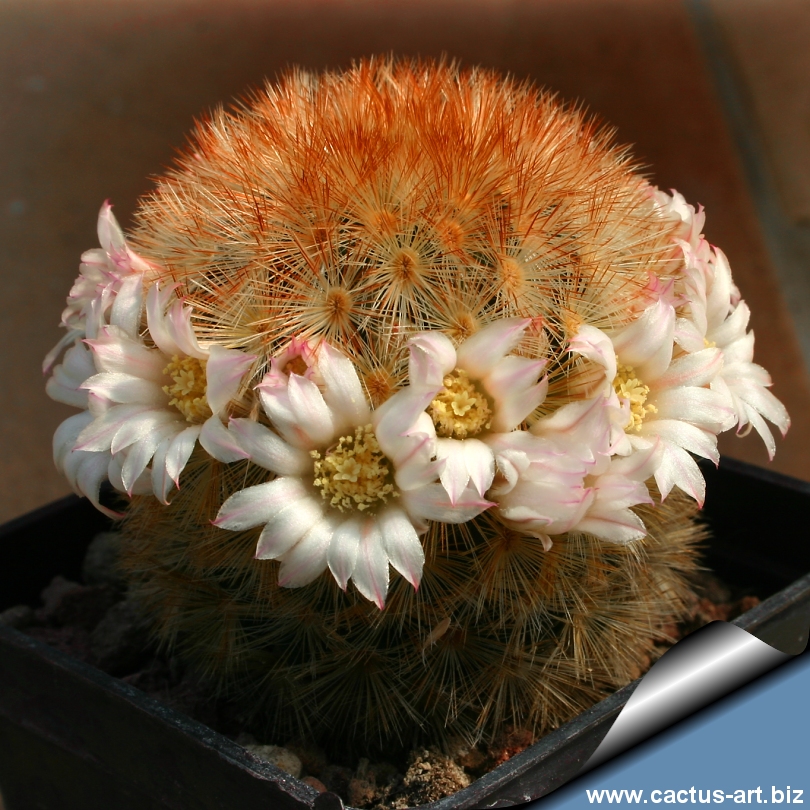
Mammillaria
carmenae
"rubrispina"
This is a superb gold and bronze-red spined form, produced by
selective breeding in Holland.
|
|
Description: Mammillaria
carmenae is a solitary or clustering globular cactus.
Stems: Globose to ovoid, 4 - 10 cm high, 3 - 5 cm in diameter.
Without latex.
Tubercles: Conical.
Axil: Woolly and bristly.
Radial spine: More than 100, soft, fine, flexible, star-like,
yellow to gold-bronze tipped in copper-red, 5 mm long.
Central spine: There are no central spines.
Flower: Daytime, Creamy white (usually) to pink to pale pink, with
apink tinge, up to 11 mm long.
Blooming season (Europe): Plants bloom at the same time in late
winter-early spring and are very generous with their flowers.
Point of interest:
Bronze-red spines.
|
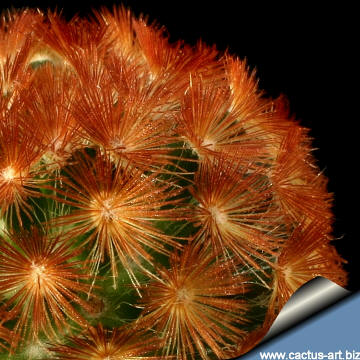
|
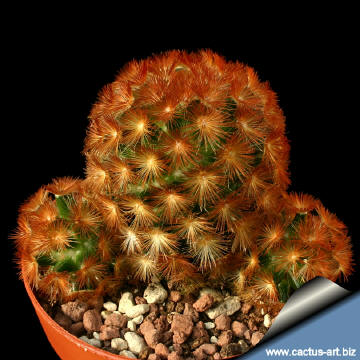
|
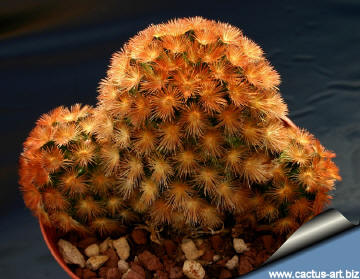
|
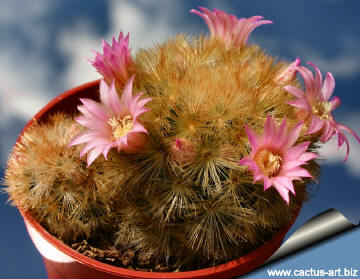
|
 |
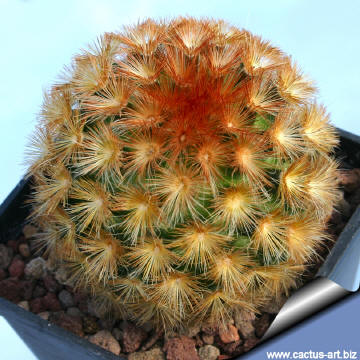 |
|
Propagation: Division, direct
sow after last frost.
Photo of conspecific taxa, varieties,
forms and cultivars of Mammillaria carmenae:
Advertising
|
|
|
|
|
Family:
Cactaceae (Cactus
Family)
Scientific name: Mammillaria
carmenae Casteņeda & Nuņez 1953
Published in: A. Inst. Biol. Mex. 24(2): 233 (1953)
forma rubrispina.
Origin:
Garden origin (Nursery
produced cultivar)
Conservation status: Listed in
CITES appendix 2.
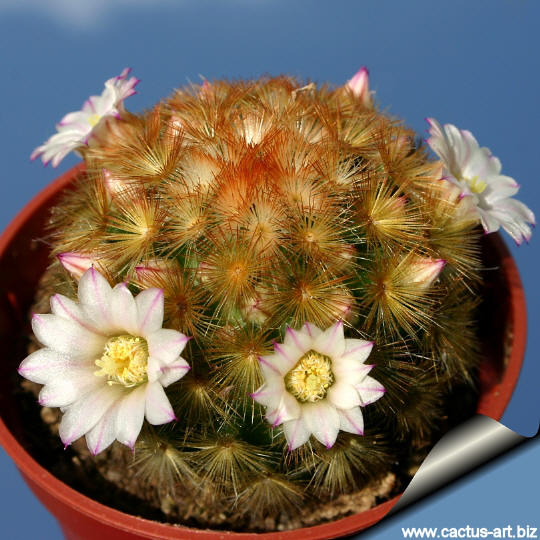 As the name implies, red spines!!! As the name implies, red spines!!!
|
|
|
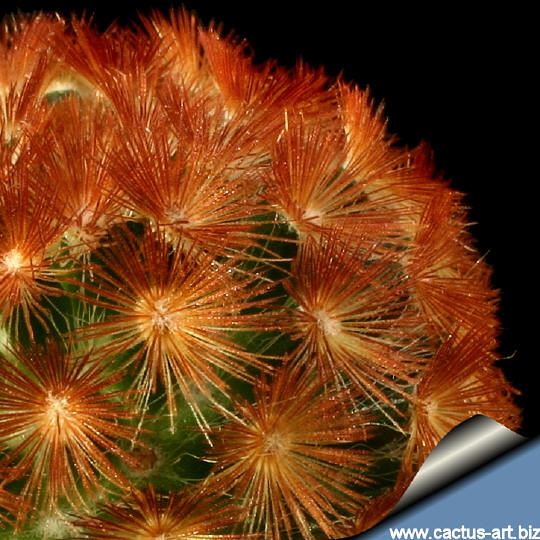
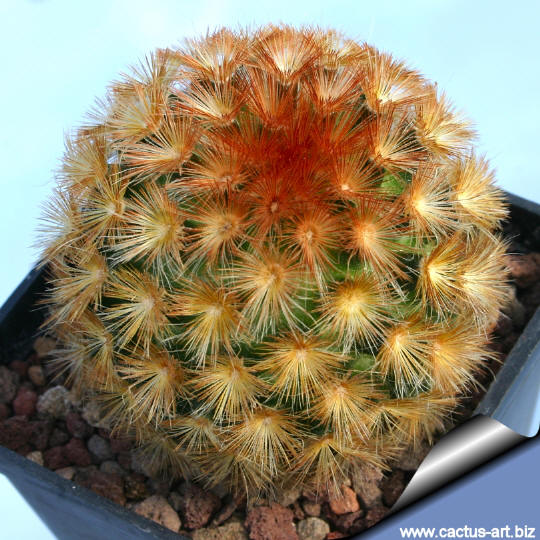
|
|
Cultivation: It is a relatively fast-growing species.
This is easily grown into clumps, but it often has an irregular
pattern of offsetting. Water regularly in summer, but do
not over-water (rot
prone). Use
a pot with good drainage and a very porous potting media.
Keep dry in winter.
Feed with a high potassium
fertilizer in summer. It is quite frost resistant if kept dry, hardy as low as -5° C.
Outside full sun or afternoon shade, inside it needs bright light, and some
direct sun.
Easily clustering and easily flowered.
Most plants will offset readily,
and clumps can be produced in a few years.
|
|


|
|